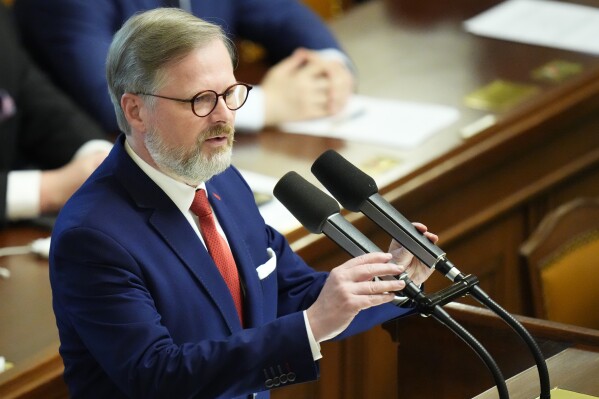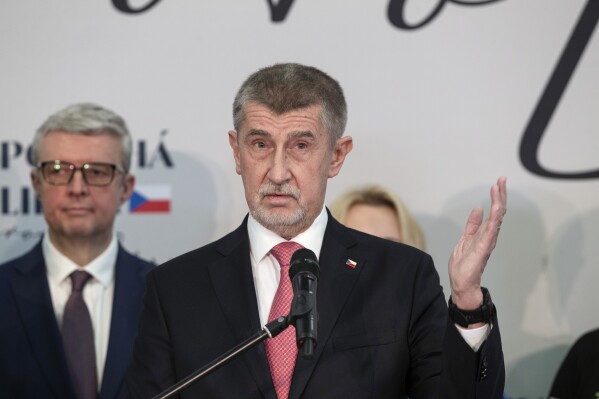Czech government faces no-confidence vote in Parliament sought by populist ex-prime minister
PRAGUE (AP) — The Czech coalition government on Tuesday faced a parliamentary no-confidence vote over opposition claims that it is incompetent in handling the economy and in controlling immigration.
The main opposition centrist ANO (YES) movement led by populist billionaire Andrej Babis accused the government of failing to deal with high inflation driven by energy prices and a new wave of migration, among other issues. Inflation has been on the decline this year, dropping from 17.5% in January to 6.9% in September.
The government has rejected the allegations.
The two opposition parties, including ANO and the anti-migrant Freedom and Direct Democracy party, are unlikely to oust the five-party coalition government led by Prime Minister Petr Fiala, which has a comfortable majority in the lower house of Parliament.
 Czech parliament’s lower house approves government plan to keep ballooning deficit under control
Czech parliament’s lower house approves government plan to keep ballooning deficit under control
 The Czech government has approved a defense ministry plan to acquire two dozen US F-35 fighter jets
The Czech government has approved a defense ministry plan to acquire two dozen US F-35 fighter jets
 Czech court cancels lower court ruling that acquitted former PM Babis of fraud charges
Czech court cancels lower court ruling that acquitted former PM Babis of fraud charges
Babis, the former prime minister, also accused the government of caring more about Ukraine than about Czech citizens. The country has been a staunch supporter of Ukraine in its fight against Russian military aggression and has accepted over 350,000 people who fled the war.
In early October, the government temporarily reintroduced checks along the border with Slovakia in an effort to stem a flow of migrants.
The formal reason given for the no-confidence motion was Fiala’s refusal to accept an opposition demand that he dismiss his interior minister because he used a cellphone that was impossible to eavesdrop. Babis claimed Interior Minister Vit Rakusan had it to communicate with organized crime but offered no evidence.
Czech lawmakers were debating the no-confidence motion, the third since the government took over after a 2021 election, with a vote expected late Tuesday or on Wednesday.
Babis has also criticized a government package designed to keep the ballooning budget deficit under control. According to the plan, which still needs approval from the Senate and President Petr Pavel, Czech citizens would pay more for beer and medicine and businesses would face higher corporate taxes.
Disclaimer: The copyright of this article belongs to the original author. Reposting this article is solely for the purpose of information dissemination and does not constitute any investment advice. If there is any infringement, please contact us immediately. We will make corrections or deletions as necessary. Thank you.




